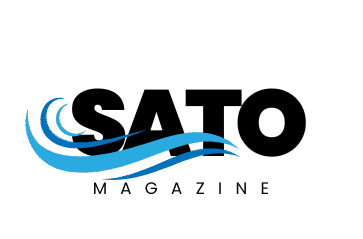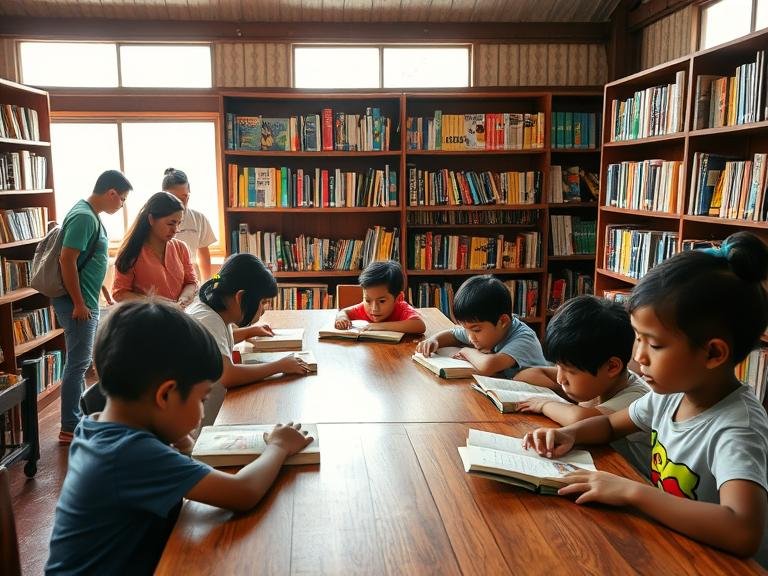Bagong Kulturang Pinoy (BKP) Boston represents a remarkable story of community dedication and cross-continental impact. This registered 501(c)(3) nonprofit organization, based in Massachusetts, has a mission to encourage a reading culture among poverty-stricken children in the Philippines. The name “Bagong Kulturang Pinoy” translates to “New Filipino Culture,” which perfectly encapsulates the organization’s vision of creating a transformative educational movement that bridges communities across oceans.
Since its establishment, BKP Boston has become a beacon of hope for countless Filipino children who lack access to basic educational resources. The organization’s approach goes beyond simple charity work – it focuses on creating sustainable, long-term solutions that empower children to break cycles of poverty through education and literacy.
Table of Contents
The Foundation and History of BKP Boston
Origins and Founding Story
The organization’s roots trace back to 1998 when founder Rowena Jimenez left Massachusetts to return to Manila with her three children. What started as a personal observation about the lack of educational resources available to neighborhood children evolved into a comprehensive literacy movement. Jimenez began conducting read-aloud sessions and established a mini-library in her home, recognizing that access to books could fundamentally change children’s futures.
This grassroots beginning demonstrates the powerful impact that individual initiative can have on communities. The transition from a small home library to a full-scale nonprofit organization illustrates how genuine concern for children’s welfare can mobilize resources and create lasting change.
Evolution into a Formal Organization
The transformation from a neighborhood initiative to a formal nonprofit organization represents careful planning and community support. BKP has been supporting more than 200 schools and community libraries throughout the Philippines since 1999, showcasing remarkable growth and impact over more than two decades.
The organization’s development reflects the dedication of volunteers and supporters who recognized the potential for scalable impact. By formalizing operations and establishing proper nonprofit status, BKP Boston created a framework for sustainable growth and enhanced accountability to donors and beneficiaries.
Mission and Core Values
Primary Educational Objectives
BKP’s goal is to help children acquire good reading skills and proficiency in English as a means to empower them to improve their lives and brighten their futures. This mission statement reveals the organization’s understanding that literacy serves as a foundation for broader life improvements, including economic opportunities, social mobility, and civic engagement.
The focus on English proficiency reflects practical considerations about global communication and economic opportunities. In an increasingly connected world, English literacy opens doors to international education, employment, and cultural exchange opportunities that might otherwise remain inaccessible to children in impoverished areas.
Cultural Transformation Through Education
The concept of creating a “new culture” through reading represents an ambitious vision for social change. BKP Boston recognizes that sustainable improvements require cultural shifts that value education and reading. By establishing reading cultures in communities, the organization aims to create environments where learning becomes a natural and valued part of daily life.
This cultural approach distinguishes BKP from organizations that focus solely on distributing materials. Instead, BKP emphasizes building communities that support and sustain educational activities over time, creating self-reinforcing cycles of learning and improvement.
Operational Strategies and Implementation
Library Establishment Program
BKP establishes libraries in daycare centers, schools, and community centers in impoverished communities throughout the Philippines to make books accessible to children. This strategic approach ensures that educational resources reach children in environments where they already gather, maximizing accessibility and convenience.
The placement of libraries in multiple types of facilities demonstrates understanding of different community structures and needs. Daycare centers serve younger children, schools reach students during formal education hours, and community centers provide access to broader age groups and family members.
Resource Management and Sustainability
These collections are refreshed and expanded with regular additions, indicating the organization’s commitment to maintaining relevant and engaging materials. This ongoing support model ensures that libraries remain dynamic resources that continue to attract and serve children over time.
The refresh system also demonstrates sophisticated understanding of educational resource management. Static collections quickly become outdated or lose their appeal, while regularly updated materials maintain interest and provide opportunities for continued learning and growth.
Geographic Reach and Community Impact
Massachusetts-Based Operations
BKP operates from Bedford, Massachusetts, serving as the administrative and fundraising hub for international operations. This Massachusetts base provides access to resources, volunteers, and supporters who contribute to the organization’s mission.
The Boston-area location offers several strategic advantages, including access to educated volunteers, diverse funding sources, and established nonprofit support networks. The Filipino-American community in Massachusetts provides cultural connections and understanding that enhance the organization’s effectiveness.
Philippine Communities Served
The organization’s work spans impoverished areas throughout the Philippines, addressing educational needs in diverse geographic and cultural contexts. This broad reach requires careful coordination and deep understanding of local conditions and requirements.
Working across multiple Philippine communities allows BKP to develop comprehensive understanding of educational challenges and effective solutions. This experience base enhances the organization’s ability to adapt programs to different contexts while maintaining consistent quality and impact.
Volunteer-Driven Model
Community Engagement Approach
BKP operates as an all-volunteer organization, relying on community members who donate their time and expertise to advance the mission. This volunteer-based model creates strong personal investment in outcomes and ensures that resources go directly to program implementation rather than administrative overhead.
The volunteer approach also builds communities of supporters who become advocates for the organization’s mission. These volunteers often contribute beyond direct service, helping with fundraising, awareness-building, and program development activities.
Skills and Expertise Utilization
The volunteer model enables BKP to access diverse skills and expertise that might otherwise be cost-prohibitive. Volunteers bring professional experience in education, business, communications, and other relevant fields, enriching the organization’s capabilities and effectiveness.
This diverse skill base allows BKP to maintain professional standards while operating with minimal overhead costs. Volunteers often contribute specialized knowledge that enhances program quality and organizational effectiveness.
Measuring Success and Long-term Impact
Educational Outcomes
The organization’s impact extends beyond simple book distribution to measurable improvements in children’s reading abilities and English proficiency. These skill developments create foundations for improved academic performance and expanded future opportunities.
Success measurement includes both immediate outcomes, such as increased reading frequency and comprehension, and longer-term indicators, such as educational advancement and career opportunities. This comprehensive approach to impact assessment ensures that programs create lasting benefits for participants.
Community Development Effects
BKP’s work contributes to broader community development by creating educated populations that can contribute to economic growth and social progress. Literate communities are better equipped to access information, participate in democratic processes, and adapt to changing economic conditions.
The ripple effects of improved literacy extend to families and communities, as educated children often share knowledge and skills with siblings and parents. This multiplier effect amplifies the organization’s impact beyond direct program participants.
Challenges and Adaptive Strategies
Resource Distribution Challenges
Operating across international boundaries presents logistical challenges related to shipping, customs, and local distribution. BKP has developed systems to manage these complexities while maintaining cost-effectiveness and program quality.
The organization must also navigate different regulatory environments and cultural contexts, requiring flexibility and local partnerships. These challenges have led to innovations in program delivery and relationship management.
Sustainability Considerations
Maintaining long-term support for libraries and programs requires ongoing fundraising and volunteer recruitment. BKP addresses these challenges through diversified funding approaches and community-building activities that create lasting supporter relationships.
The organization also works to develop local capacity and leadership that can sustain programs over time. This approach reduces dependence on international support while ensuring continuity of services.
Future Vision and Expansion Plans
Program Development Opportunities
BKP continues to identify opportunities for program expansion and enhancement. Potential developments include digital literacy components, teacher training programs, and expanded age group services.
The organization’s experience base provides a foundation for innovation while maintaining focus on core literacy mission. New program elements build on proven approaches while addressing evolving educational needs and technological opportunities.
Partnership and Collaboration Potential
Future growth may involve partnerships with other organizations, government agencies, and international development groups. These collaborations could expand resources and reach while maintaining BKP’s distinctive volunteer-driven approach.
Strategic partnerships offer opportunities to leverage additional expertise and resources while maintaining organizational identity and mission focus. Careful partner selection ensures alignment with core values and objectives.
Frequently Asked Questions (FAQs)
Q: What does BKP stand for and what does it mean? A: BKP stands for Bagong Kulturang Pinoy, which translates to “New Filipino Culture” in English. The name reflects the organization’s mission to create a new cultural emphasis on reading and literacy among Filipino children.
Q: How can I volunteer with BKP Boston? A: BKP is an all-volunteer organization that welcomes community members interested in supporting literacy initiatives. You can contact the organization through their official channels to learn about current volunteer opportunities and requirements.
Q: Where exactly does BKP operate in the Philippines? A: BKP supports more than 200 schools and community libraries throughout various impoverished areas of the Philippines. The organization works in daycare centers, schools, and community centers across different regions.
Q: What types of books and materials does BKP provide? A: BKP focuses on age-appropriate reading materials that help children develop reading skills and English proficiency. Collections are regularly refreshed and expanded to maintain relevance and engagement.
Q: How is BKP Boston funded? A: As a 501(c)(3) nonprofit organization, BKP relies on donations from individuals, fundraising events, and community support. The volunteer-driven model helps ensure that resources go directly to program implementation.
Q: Can I donate books directly to BKP? A: While BKP accepts various forms of support, potential donors should contact the organization directly to learn about current needs and donation procedures, including any requirements for international shipping.
Q: How long has BKP been operating? A: BKP has been promoting literacy among impoverished children in the Philippines for over 25 years, with formal operations beginning in 1999 following the founder’s initial efforts in 1998.
Q: What makes BKP different from other literacy organizations? A: BKP’s unique approach combines cross-cultural connection, volunteer-driven operations, and focus on creating sustainable reading cultures rather than simply distributing materials.

